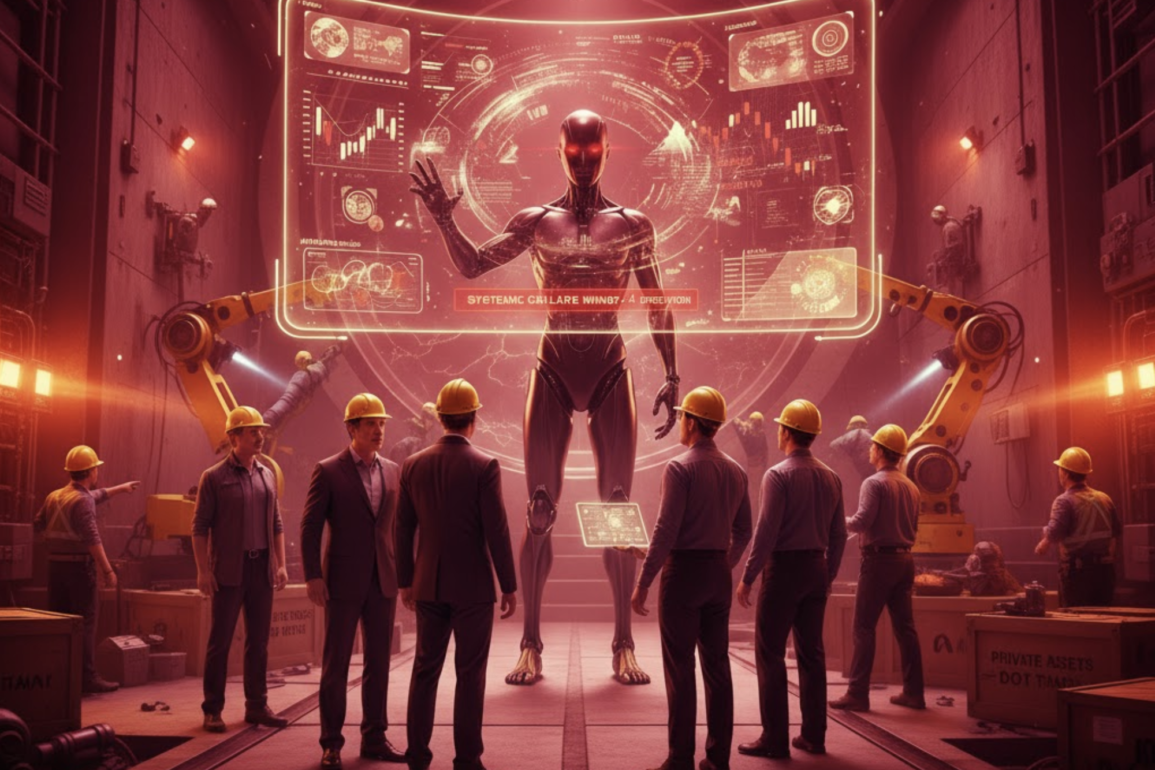From the winding roads that cut through the lush hills of Kauai, Hawaii, you can glimpse the high walls and thick greenery guarding Mark Zuckerberg’s vast estate. Known as Koʻolau Ranch, the 1,400-acre property has become the subject of both fascination and rumor — a symbol, perhaps, of the uneasy marriage between extreme wealth, cutting-edge technology, and an ever-present sense of apocalypse.
Zuckerberg began work on the sprawling compound around 2014. What began as an ambitious Hawaiian retreat is now said to include a shelter — a 5,000-square-foot underground space with its own power and food supplies. Carpenters and electricians who worked on the project were bound by strict nondisclosure agreements, according to a report by Wired. A six-foot wall blocks the site from view, though even that hasn’t stopped the speculation.
When asked last year whether he was building a doomsday bunker, Zuckerberg offered a flat denial. “No,” he said. “It’s just like a little shelter, it’s like a basement.”
But to many observers, that explanation didn’t quite dispel the intrigue. In Palo Alto, where Zuckerberg reportedly bought 11 homes in the Crescent Park neighborhood — spending around $110 million — building permits refer to “basements.” Some neighbors call them bunkers, or “a billionaire’s bat cave.”
He isn’t the only one digging in. Across Silicon Valley, several of the world’s most powerful tech leaders appear to be quietly preparing for disaster — whether it’s war, pandemics, or something more existential: the rise of artificial intelligence.
Reid Hoffman, the co-founder of LinkedIn, has called it “apocalypse insurance.” He once said that about half of the super-wealthy he knows have some form of it — often in the form of property in New Zealand, a favorite destination for end-times real estate.
And then there are those who seem to believe that what could end the world might not come from the skies, but from their own labs.
Before he was sent to jail for 25 years, former crypto billionaire Sam Bankman-Fried had chalked out how he would purchase the island nation of Nauru, according to court filings during his trial. Come the great fire or flood, he would move himself and his colleagues in the effective altruism movement into a bunker there, to wait out the apocalypse.
The court filings in a federal bankruptcy court in Delaware, dated July 20, 2023, included a memo crafted by an FTX Foundation official and Sam Bankman-Fried’s brother Gabriel Bankman-Fried. It outlined the future survival of FTX and Alameda Research employees and all those who subscribed to the effective altruism concept.
The ultimate strategy was “to purchase the sovereign nation of Nauru in order to construct a ‘bunker / shelter’ that would be used for some event where 50%-99.99% of people die [to] ensure that most EAs (effective altruists) survive.” The memo also mentioned to plans to develop “sensible regulation around human genetic enhancement, and build a lab there,” noting that perhaps “there are other things it’s useful to do with a sovereign country, too.”
“We’re Definitely Going to Build a Bunker”
By mid-2023, as ChatGPT was sweeping across the world and transforming how people work, learn, and talk, one of its creators, Ilya Sutskever, began worrying about what might come next.
According to journalist Karen Hao, Sutskever — the chief scientist and co-founder of OpenAI — grew convinced that computer scientists were on the verge of developing artificial general intelligence (AGI), the moment machines match or surpass human reasoning.
In a meeting that summer, he reportedly told colleagues: “We’re definitely going to build a bunker before we release AGI.”
It’s unclear who he meant by “we,” but the sentiment underscores a deep anxiety running through the AI world: that those building the technology understand its risks better than anyone else.
Even as they race to develop smarter systems, some of the field’s brightest minds are haunted by the possibility that these systems could one day outthink — or outmaneuver — their creators.
When Will AGI Arrive?
Predictions vary wildly. Sam Altman, OpenAI’s chief executive, said in December 2024 that AGI will come “sooner than most people in the world think.”
Demis Hassabis, co-founder of Google DeepMind, has placed the timeline at five to ten years. Dario Amodei, the founder of Anthropic, has said what he prefers to call “powerful AI” could appear as early as 2026.
Others remain skeptical. “They move the goalposts all the time,” Dame Wendy Hall, professor of computer science at the University of Southampton told the BBC. “The scientific community says AI technology is amazing, but it’s nowhere near human intelligence.”
Babak Hodjat, chief technology officer at Cognizant, agrees that “fundamental breakthroughs” are still needed. AI’s progress, he said, will not come as a single moment of awakening but as a series of advances — each new model edging a bit closer to something that looks, and feels, more human.
Yet the idea of the singularity — when machine intelligence eclipses our own — still holds a powerful grip on Silicon Valley’s imagination. The concept dates back to John von Neumann, the Hungarian-born mathematician who first theorized in the 1950s that technological progress would someday become uncontrollable.
That prophecy has been revived in books like Genesis (2024), co-written by Eric Schmidt, Craig Mundie, and the late Henry Kissinger, who argued that superintelligent machines will eventually govern human decisions — not because we want them to, but because they’ll do it better.
Utopia or Oblivion?
Optimists see the future differently. To them, AGI will be humanity’s greatest invention — a tireless, impartial intelligence that will solve disease, climate change, and poverty.
Elon Musk has even envisioned a world of “universal high income,” where “everyone will have the best medical care, food, home transport, and everything else. Sustainable abundance.”
He believes that AI could make personal robots as common as smartphones: “Everyone will want their own personal R2-D2 and C-3PO,” he said, referencing the beloved Star Wars droids.
But the darker scenario is never far away. “If it’s smarter than you, then we have to keep it contained,” warned Tim Berners-Lee, creator of the World Wide Web. “We have to be able to switch it off.”
Governments are trying to keep up. In 2023, President Joe Biden signed an executive order requiring AI firms to share safety test results with regulators — an order Donald Trump later rolled back, calling it a “barrier to innovation.” The U.K. created its AI Safety Institute, tasked with studying risks from advanced systems.
And yet, for all the talk of regulation, many of those closest to the technology seem to prefer private protection — or private escape routes.
As Hoffman once put it, “Saying you’re buying a house in New Zealand is kind of a wink, wink, say no more.”
A former security guard for one billionaire described the irony more bluntly. If doomsday ever came, he said, the first move would be to “eliminate the boss and get in the bunker themselves.”
The Myth of AGI
Not everyone buys into the apocalypse narrative.
“The notion of Artificial General Intelligence is as absurd as the notion of an ‘Artificial General Vehicle,’” said Neil Lawrence, professor of machine learning at the University of Cambridge.
“The right vehicle depends on context — I fly in an Airbus to Kenya, I drive a car to work, I walk to the cafeteria. There’s no vehicle that can do it all.”
For Lawrence, the obsession with AGI misses the real revolution happening now.
“The technology we already have allows normal people to directly talk to a machine and have it do what they intend. That is absolutely extraordinary — and utterly transformational,” he said. “The big worry is that we’re so drawn in to big tech’s narratives about AGI that we’re missing the ways we need to make things better for people.”
Current AI tools, he noted, don’t feel or think — they simply predict. “There are some ‘cheaty’ ways to make a large language model act as if it has memory, but these are unsatisfying and quite inferior to humans,” said Hodjat.
Vince Lynch, CEO of IV.AI in California, added that the idea of AGI is “great marketing.”
“If you are the company that’s building the smartest thing that’s ever existed, people are going to want to give you money,” he said. “It’s not a two-years-away thing. It requires so much compute, so much human creativity, so much trial and error.”
When asked if he believes AGI will ever arrive, Lynch paused. “I really don’t know,” he said finally.
Intelligence Without Consciousness
Despite all the hype, one truth remains: AI doesn’t know what it knows.
Humans possess meta-cognition — the awareness of our own thoughts. Machines don’t. “If you tell a human that life has been found on an exoplanet, they’ll immediately absorb that information and update their worldview,” Hodjat said. “For a large language model, it will only ‘know’ that if you keep repeating it.”
Even as AI grows more capable, the human brain — with its 86 billion neurons and 600 trillion synapses — remains the most complex and efficient system in the universe.
That may be why, for all their money and foresight, Silicon Valley’s titans are still digging. The bunkers, the secrecy, the apocalyptic insurance — all of it may point to a deeper truth: they can build machines that mimic our intelligence, but they cannot yet reproduce our fear.
And fear, for now, remains deeply, stubbornly human.




